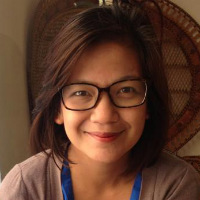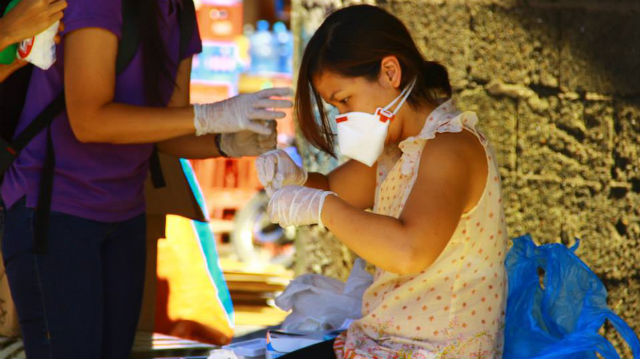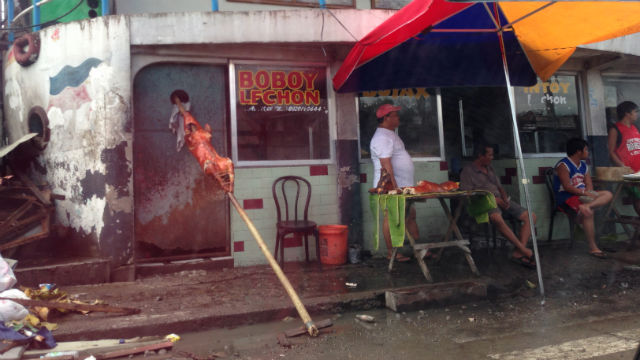SUMMARY
This is AI generated summarization, which may have errors. For context, always refer to the full article.
 Tragedy was a word that I associated with my Grandfather passing away. Our house getting submerged in 14 feet of water. A broken heart. A lost advertising pitch. Young lives going to waste. Before Haiyan/ Yolanda, tragedy was a word I used so flippantly. I had no idea what it could mean.
Tragedy was a word that I associated with my Grandfather passing away. Our house getting submerged in 14 feet of water. A broken heart. A lost advertising pitch. Young lives going to waste. Before Haiyan/ Yolanda, tragedy was a word I used so flippantly. I had no idea what it could mean.
A week before the typhoon, I was in Tacloban for All Souls’ Day. That week my cousins and I surfed thrice in Dulag, a relatively unknown surf spot an hour away from Tacloban (also where Yolanda made her second landfall). The beach was kind to us. Sunny skies, perfect swell, peace. The biggest concern on my head was which playlist to blast on my speakers, how we could maximize the sunset but still make it in time for my late grandfather’s November 1 mass and prayers. How I could transport lechon from Tanauan to Singapore. That was the world of Tacloban- a place where people had trivial problems and lived for simple joys and humble dreams. I did not realize how soon I would be saying goodbye to so many people who made the city familiar, who made it home.
I flew back “home” on November 12 under completely different circumstances. I didn’t know which left turn to take going to our house; the destroyed streets, the silence, the smell, the darkness were all foreign to me. Except this was Tacloban, and it smelled and felt like death and decay. Silence fell upon what used to be busy and bustling streets. It was the combined silence of grief and devastation, of people in shock, of not knowing where to start. It was deafening.
“There is a reason why we were born in Tacloban,” my sister Chinggay said in an attempt to make sense of the situation and the roles we had to play. Why our houses were damaged but still habitable, when other houses were looted despite having owners’ corpses inside. Why we were still complete (except for our beloved carpenter who served our family for 30 years) when so many people around us were lost in grief.

Keeping busy
For the last two weeks my family and I have kept ourselves busy with relief operations: a mix of highs and lows, to say the least.
We hosted a team of French journalists from BFMTV in our damaged house. I thought disaster reporters could at least some light heartedness to the drama – until they said that Tacloban was the worst disaster they had ever seen. Those guys had lived in Afghanistan for 2 years, covered the earthquake in Haiti, genocide in Mali. They found comfort in my mother’s handy jar of Nutella and our stories of historical family jokes.
I was put on standby on the first day I tried to volunteer at the City Hall. There were no relief packs left to assemble. I wondered why having a reliable pair of hands was of no use despite thousands who were dying on the streets.
A man approached me on the street asking for a lighter. He proudly told me he looted his fancy iphone-designed cigarette case. The old residents of Tacloban claimed that Taclobanons would never loot. That looters were from the neighboring towns. In front of me was a proud thief and I had just given him directions to the queue of relief goods.
Some time ago I learned how to administer injections from first aid courses. I am not a nurse but I did come with 400 anti-tetanus shots- all of which we injected over the course of two days. A young girl’s chest was covered in green pus but she was self-conscious about showing her developing breasts in public. Many of the wounded were still afraid of injections despite having survived an apocalypse.
At night
There were 3 attempts to rob our damaged house. Despite fearing for my life at night amidst the sound of gunshots, I also learned that an escaped prisoner entered my uncle’s home but assured him that he meant no harm. He just wanted to eat, because being a prisoner deprived him of access to any form of relief. I understood.
My grandmother said “We are safe, the Americans are here.” In spite of US troops patrolling her street, the bank across her house was robbed at the dawn of November 14. She witnessed how the robber waved his dagger around while the police surrounded him. How easily that man could have chosen to raid her house instead of the bank opposite it. She flew to Manila a day later.
I joined the An Waray partylist relief operations in Dulag, our surf spot. (READ: After Yolanda, JR goes home to look for family)
We crossed countless of fallen trees to get to the house of Thomas, our instructor. I was so sure he didn’t stand a chance against the storm. We spotted Thomas on a motorbike–in tears because his 4 year old godson didn’t make it. We asked him if he needed an anti-tetanus shot (I had kept the last one in my backpack). He nodded, took it and injected himself. I don’t even want to know how he learned how to give himself shots.

Those with nothing
On the streets of Tacloban, in between debris, corpses and body bags, I also saw lechon (roasted/ suckling pig) being sold on the streets. Normally a festive dish, I wondered who would buy lechon at a time like this.
We gave bread and water to children who, twenty minutes later, I saw begging for alms on the streets. While I did not want to perpetuate mendicancy, how could I judge them? Empathy did not make me one of them. I was not a person who had lost everything.
I met a friend in the V&G church two Sundays ago. A boy whose t-shirt read “Those who have nothing.” I was searching for a candle to light when he took out an imaginary candle from his battered t-shirt, “handed” it to me and lit it with his imaginary match. That gesture, seemingly insignificant to the malnourished boy, made me realize that this is still the Tacloban I know and love. I take comfort in knowing Tacloban will always be filled with people hopeful enough to use imaginary pick-me-ups to soldier through harsh reality. And that life to us will always be more than a giant sob story. (READ: Haiyan survivors cheer Pacquiao, seek help)
I come from a place where pockets of hope exist everyday:
- in the thousands of survivors cheering Pacquiao on;
- in the soldiers from all over the country who have given up Christmas to stay in Tacloban;
- in the thousands who have fled the city but will one day return to their roots;
- in those who work tirelessly to restore power, bring relief and livelihood to our people;
- in the many who have felt for people far less fortunate than them; and
- in every new signboard that the painter puts up (We fought and survived World War II. This is just Yolanda- so why will you run?).
This is why I am from Tacloban and why, without a doubt, I know we will overcome. We have shown the world how Taclobanons, Warays, Filipinos will go through extraordinary lengths to keep our friends, families, and innocent strangers alive. While most of the old Tacloban is lost to the typhoon and the volatile politics in its wake, our spirit is alive and it will conquer—come hell or high water, a thousand times over. – Rappler.com
Kay is a 27-year old OFW working in SapientNitro, a digital consulting firm in Singapore. Her roots are in Tacloban- she spent a number of childhood years there and visits it regularly. Her second to the last visit was a week before the typhoon.
Add a comment
How does this make you feel?
There are no comments yet. Add your comment to start the conversation.